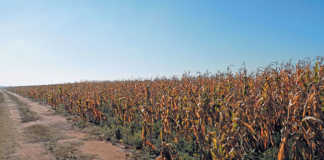Thabi Nkosi
Senior economist at Agri SA, Thabi Nkosi, says she expects more clarity on funding for agri-parks and land reform.
“Funding for land reform programmes has been declining in real terms for a number of years, despite renewed focus on the matter,” she said.
She also expects further pronouncements on the diesel rebate and clarity regarding the changes that have occurred with the rebate dispensation.
“I hope to hear about additional fiscal allocations for drought relief, focussing not just on short-term interventions like fodder supply but also on more long-term issues like ensuring that farmers have access to capital for the coming season.”
She further would like additional allocations from the Land Bank for drought relief funding and creative models for both drought relief and land reform, like state guarantees and interest subsidies.
“These will prove to be effective at minimal burden to the fiscus,” she said.
Ruth Hall
“The big story is that over the past five years we’ve seen increasing political commitment and rhetoric around scaling up land reform, but we have also seen a decrease in budget and resources,” says Ruth Hall, Associate Professor at the Institute for Poverty, Land and Agrarian Studies.
One increasingly sees that available money for redistribution of land is being diverted to other areas, like the recapitalisation programme and the 50/50 programme, according to her.
“The pot is shrinking,” she says. The big question is: in the current fiscal squeeze, will the allocation be increased, retained or reduced?
Although unlikely, Hall says she hopes to see increased allocations for redistribution of land.
Dawie Roodt
Dawie Roodt, economist at the Efficient Group, expects agriculture to enjoy greater attention at this year’s budget speech, compared to last year’s. Although he is relatively certain that financial assistance will be given to farmers, he warns that farmers should not be too optimistic.
“The amount will not be significant and it remains to be seen if the money will actually reach farmers,” Roodt said.
According to him, government expenditure will be a key issue at this year’s budget speech. However, considering that 2016 is an election year, it will be very difficult for Finance Minister Pravin Gordhan to implement drastic measures, such as cutting back on public servants’ salaries.
On a positive note, Roodt concluded by stating that he foresaw no VAT rate increase in Minister Gordhan’s upcoming budget speech.
Annette Steyn
Annette Steyn, DA MP and spokesperson for agriculture, forestry and fisheries, anticipates that the main focus of the budget speech will be on the economy and what the government will do to turn it around. She hopes this will include the privatisation of state-owned enterprises.
Steyn is hopeful that the government will announce drought relief funding for farmers. She said that although the government is aware of the urgency of the current situation, it does not know where it will find the funds to attend to the problem.
“Government has already exhausted last year’s disaster fund to pay the salaries and benefits government is offering to public servants,” she said.
An additional disaster fund should be made available, but with no money and a lot of extra expenditures, this seems impossible, according to her.
Mario Hilton Witbooi
Mario Hilton Witbooi, the acting general secretary of BAWSI Agricultural Workers Union of SA, said that the union would like to see assistance in the form of subsidised trade unions in the agricultural sector, and “the setting up of a fund that could assist workers who lose their wages due to unpredictable or harsh weather conditions”.
In addition, the issue of an increase in farm worker wages must be addressed at the budget speech, he said.
The proposed increase is much lower than 2015, and BAWSI would like to see a standard wage increase across all sectors, according to him.











